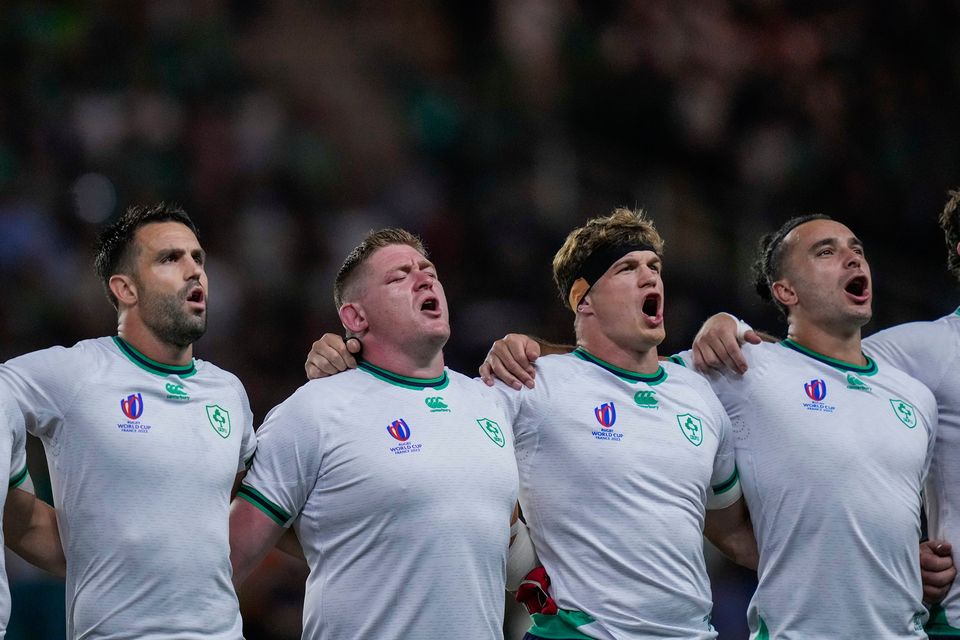As the Six Nations tournament heats up in 2025, Ireland’s rugby team continues to capture the world’s attention—not just for their athleticism, but also for their unique anthem tradition. Every time the Irish XV takes the field, fans are treated to two powerful songs: the historic “Amhrán na bhFiann” (The Soldier’s Song) and the modern, unifying “Ireland’s Call.” Far from a simple musical curiosity, these dual anthems reflect the complex tapestry of Irish history, national identity, and evolving rugby culture on the island. The anthem choice embodies sensitivities spanning from Irish nationalism to inclusiveness in Northern Ireland, with roots in the political and cultural dynamics that define 21st-century Ireland.
Origins: Why Does the Ireland Rugby Team Have Two Anthems?
The presence of two anthems at Irish rugby matches is a direct result of the nation’s political and social history. The Irish Rugby Football Union (IRFU) governs the sport for the entire island—including both the Republic of Ireland and Northern Ireland. This cross-border representation makes rugby unique in comparison to other major Irish sports, where the Republic and Northern Ireland typically field separate teams, such as in soccer.
“Amhrán na bhFiann,” the Republic’s national anthem, is loaded with references to Irish nationalism and carries political undertones that do not resonate with the Unionist population of Ulster. In the 1990s, seeking unity, the IRFU commissioned Phil Coulter to write “Ireland’s Call.” Debuting in 1995, it became an inclusive anthem for all four provinces: Ulster, Leinster, Munster, and Connacht.
- The Soldier’s Song: Sung only at home games in Dublin’s Aviva Stadium, representing the Republic.
- Ireland’s Call: Sung at all matches—home and away, in recognition of both communities.
- Both anthems together project a message of unity without erasing diversity.
| Anthem | When Sung | Symbolism |
|---|---|---|
| The Soldier’s Song (Amhrán na bhFiann) | Home matches (Republic only) | Irish nationalism, tradition |
| Ireland’s Call | All matches, including abroad | Unity, inclusion, modern identity |
This commitment to inclusion sets rugby apart, offering lessons in reconciliation and team spirit. For an in-depth look at a recent Irish team’s performance, see the detailed player ratings vs France.
[embedded content]
Cultural Meaning: Rugby, Anthems, and Irish Identity
Rugby’s approach to national identity in Ireland is unlike any other sport on the island. While football divides along national lines, rugby brings together players and supporters from across different communities. The singing of two anthems, backed by the spirited crowd, bridges past conflicts and current aspirations.
- Dual anthems symbolize mutual respect between Irish and British heritage.
- “Ireland’s Call” references places from all four provinces, highlighting shared pride.
- The music is infused with Celtic music influences, reinforcing cultural roots.
- The anthem’s lyrics emphasize “standing shoulder to shoulder”—a rugby and national metaphor.
- The Fields of Athenry, a popular Irish ballad, is often sung by fans, reinforcing rugby culture.
| Reference in Anthem | Province Represented | Cultural Significance |
|---|---|---|
| The glens of Antrim | Ulster | Links to the North |
| The hills of Galway | Connacht | Rural West pride |
| The walls of Limerick | Munster | Battles, resilience |
| Dublin Bay | Leinster | Cosmopolitan East |
In fact, both the rugby and cricket teams play as one unit for the entire island, choosing “Ireland’s Call” for international representation. Many other sports—such as soccer—keep the North-South divide, showing rugby’s unique approach to national identity.
From Political Tension to Unifying Song: The Evolution of Ireland’s Call
The journey toward using “Ireland’s Call” was neither quick nor universally accepted. In the late 1980s, mounting political tension—including tragic incidents like the 1987 IRA border bombing that injured Irish players—made the performance of “The Soldier’s Song” increasingly complex for an all-island team. As rugby was keen on inclusiveness, the IRFU sought a new anthem devoid of political context.
[embedded content]
- Before “Ireland’s Call,” the anthem “The Rose Of Tralee” briefly filled the gap during the 1987 Rugby World Cup—but failed to energize fans.
- By 1995, sociopolitical progress pushed the IRFU to adopt a neutral and uplifting song for international games.
- Phil Coulter, hailing from Derry, wrote an anthem that invoked the four provinces and a sense of common purpose.
| Key Event | Impact on Anthem Choice |
|---|---|
| 1987 Rugby World Cup | Temporary use of neutral songs |
| 1995 Rugby World Cup | Launch of “Ireland’s Call” as primary anthem |
| Current Six Nations | Singing both anthems at home, only Ireland’s Call at away |
Today, “Ireland’s Call” is not just sung at rugby matches; the cricket, hockey, and even rugby league teams for Ireland use it to represent the all-island teams. Yet, its introduction also sparked lively debate among traditionalists who favored the historic anthem. Over time, the anthem has become a rallying cry—echoing through stadiums as thousands stand “shoulder to shoulder.”
For more on player perspectives about singing the anthems, discover why Rory Best chooses not to sing before matches.
Lyrics, Meaning, and Rituals: What Makes Each Anthem Distinct?
The lyrics and format of both anthems reveal much about modern Ireland and rugby culture. While “The Soldier’s Song” celebrates sacrifice and is reminiscent of global national anthems with militaristic imagery, “Ireland’s Call” is crafted as a neutral, sporting anthem that captures the aspirations of a new generation.
- “The Soldier’s Song” is sung in Irish at home matches, representing the state’s tradition and language.
- “Ireland’s Call” mentions all four provinces as a gesture of unity.
- Only the first verse and chorus of “Ireland’s Call” are sung before games, making it easy to remember and sing along.
- The Fields of Athenry is regularly sung by fans, further connecting rugby with iconic Irish music.
| Anthem | Language | Theme | Frequency at Matches |
|---|---|---|---|
| The Soldier’s Song | Irish (occasionally English) | Nationalism, struggle | Home matches |
| Ireland’s Call | English | Unity, sporting pride | All matches |
Even today, some players opt not to sing—using the moment instead for mental preparation. This personal approach is discussed candidly by leading figures in Irish rugby; visit this feature to learn more: Why Rory Best doesn’t sing the anthems.
Legacy and Impact: Ireland’s Call in 2025 and Beyond
Across rugby stadiums from Dublin to Paris, the tradition of singing “Ireland’s Call” underscores Ireland’s evolution—embracing a wider sense of belonging for supporters and athletes alike, irrespective of background. This ritual is not just about sport, but about finding common ground in a shared song as Ireland continues to shape its place in Europe and the sporting world.
- “Ireland’s Call” binds fans and players, regardless of province or politics.
- The tradition continues to spark healthy debate among Irish rugby followers.
- Major international matches highlight the anthem’s prominence, especially when played against old rivals.
- Other all-island sports, particularly cricket and hockey, have adopted the anthem to represent unity.
| Sport | All-Island Representation? | Anthem Used |
|---|---|---|
| Rugby Union | Yes | The Soldier’s Song & Ireland’s Call |
| Soccer | No | Separate anthems |
| Cricket | Yes | Ireland’s Call |
| Hockey | Yes | Ireland’s Call |
Ultimately, rugby’s dual anthem tradition fosters national identity grounded in both history and hope—an example that continues to resonate far beyond the pitch in 2025.
Read the latest tactical breakdown of Ireland’s team performance for further insights into how these themes play out on the field.
FAQ: The Ireland Rugby Anthem Tradition Explained
The IRFU created “Ireland’s Call” in 1995 to unify players from both the Republic of Ireland and Northern Ireland by avoiding political divides, offering an anthem all provinces could embrace equally.
Yes, cricket and hockey—both playing as all-island teams—also use “Ireland’s Call” at international events, following rugby’s example.
At home games in the Republic, both “The Soldier’s Song” and “Ireland’s Call” are sung. In away games, only “Ireland’s Call” is used to ensure inclusivity.
Yes, some traditionalists prefer only “The Soldier’s Song,” but “Ireland’s Call” is now woven into rugby culture and widely embraced.
It’s a personal choice; many prefer to focus mentally before kick-off.




